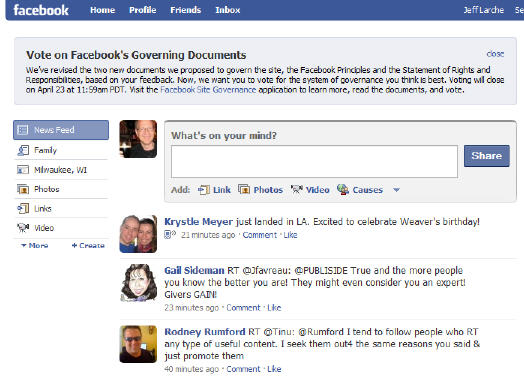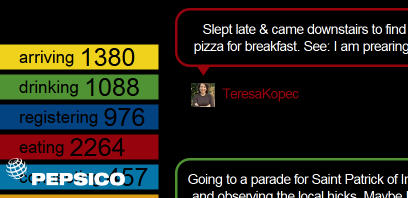Do you find this as interesting as I do? Look at the box at the top of this screen capture, from Facebook:

Sometimes we forget that Facebook is more of a community than some physical neighborhoods. Folks know each other (on Facebook, most everything is only viewable by ordained “Friends”), and people care about how they are perceived by the rest of the neighborhood. As various outcries attest, this is a community whose residents truly care. Remember the brouhaha a couple of years ago over Facebook launching its News Feed, to inform every friend of a person’s activities — including the posting of relationship break-ups, social snubs, and embarrassing photographs?
For those who can’t make it out, this notice on Facebook this evening reads as follows:
Vote on Facebook’s Governing Documents
We’ve revised the two new documents we proposed to govern the site, the Facebook Principles and the Statement of Rights and Responsibilities, based on your feedback. Now, we want you to vote for the system of governance you think is best. Voting will close on April 23 at 11:59am PDT. Visit the Facebook Site Governance application to learn more, read the documents, and vote.
Would you expect anything less than elections and referendums within this sprawling community?
(And just how sprawling, you ask? Consider Manhattan. It has tens of millions of residents, yet its boroughs can be counted on exactly one hand. Conversely, the boroughs of Facebook are themselves in the millions — although there is much overlap*.)
*Each person’s Friends list could be considered itself a borough. Think of the overlap between people in their Friends lists as the boundaries between boroughs.
